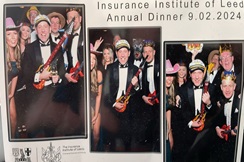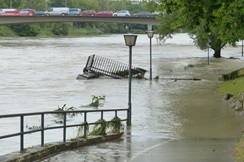Claims Managers Beware!
(blank)
Proceed with caution!
Although the Association of British Investigators does have a code of conduct for covert surveillance services (which is promoted on The Law Society website), there are currently no specific restrictions, regulations or requirements for anyone wishing to start up as a Private Investigator. In real terms, this means that anyone with a camera and time on their hands can start up such a company and call themselves an ‘expert’.
Stephen Hayes, a former market leader in the field of surveillance, has recently returned to the claims investigation arena, to offer his support in the continuing battle against spurious, or even fraudulent personal injury claims, following a worrying increase in the number of insurance companies who have paid for expensive ‘evidence’ that, in the end, serves neither case. He was the first in the industry to be awarded the Quality IS 9002 Standard and has frequently been called upon to give evidence in legal proceedings, most notably, in the case of McGuinness v The Kellogg Company of GB (1988), which eventually led to a ground-breaking Law Lords decision.
These days, he is somewhat bewildered by the selection process of surveillance personnel with “application forms that allow for extreme levels of exaggeration”. Apparently there is little or no vetting, which potentially leaves any Claims Manager in the dark as to the validity of cited or even supposed expertise.
This problem was probably best illustrated in the case of Marlene Samson and Mohammed Ali heard in the Royal Courts of Justice, London, 2012. In essence an ‘expert in the field’ was appointed to observe Ms Samson over a 2 year period following submission of a claim that injuries she sustained in a collision with Mr Ali eventually left her unable to work and in constant pain.
DVD’s of covert filming were submitted to the courts for review along with various reports. On 26 occasions the subject was sighted, but not filmed, close to her home as she entered and left her vehicle. On a further 20 occasions she was seen on or near public transport areas but, again, not filmed; and on an unbelievable 74 occasion’s film was edited in such a way that failed to show the true level of the subject’s disability which could influence the case either way. Furthermore, it was clear that footage had been taken but omitted, by means of editing, and it was also obvious that, at one point, the film had been speeded up in a bizarre case of misguided loyalty on the part of the company carrying out the filming.
Although widely acknowledged that the submission was flawed, the defence had nothing else available, so it was reluctantly submitted in evidence and used to form the final judgement - which ultimately saw the plaintiff awarded a six figure sum. And to add insult to injury the company producing the film was still paid handsomely for something that was clearly a waste of everyone’s time and money.
In recognising the obvious flaws in the selection process of such companies, Stephen Hayes is now offering a two-fold consultancy service to insurers. He is available to give evidence relating to video surveillance taken and submitted as part of a claim, and also offers a support service to Insurance Company Procurement Departments, ensuring potential surveillance providers are vetted physically before appointment. This includes comparisons made against the possible misleading submissions in their tender forms. As a former police officer in the 60’s and 70’s and, bearing in mind his other credentials, he can be considered a true ‘expert in the field’, adopting an approach which would, no doubt, save considerable time, money, embarrassment and yes, even a miscarriage of justice!
Stephen Hayes can be contacted via linkedIn.










